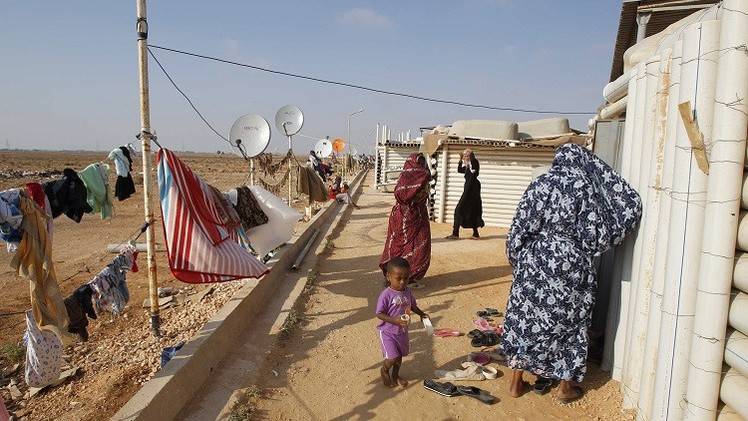In continuous disregard of their plight, suffering of displaced people inside Benghazi remains despite cessation of war.
Pulbished on:
Benghazi, 23 February 2022 (Lana) War displaced people in areas inside Benghazi have revealed the difficult humanitarian situation they are living in in their displacement camps, despite the cessation of war in the country for more than a year, and the start of a new phase.
The displaced told the Libyan News Agency (Lana), which visited the area in which they live that their crisis continues to be at the forefront of the humanitarian scene, and is worsening day by day and that they are suffering in the absence of the most basic needs, not secondary ones.
Abu Agila Al-Ajaili, a displaced from the city of Ajialat, recounted to Lana correspondent the tragedy of his displacement, saying (we live in this location "tourist village" which is uninhabitable and dilapidated, and unsuitable for living but the need has compelled us to maintain it at our personal expense, initially so that we can stay in it, not to mention the rotten environment, where he lives in the midst of dilapidated sewage tanks, in addition to the permanent interruption of electricity and the absence of water.
"Since we came to Benghazi and we were displaced, no official has come to us to inspect our condition and check on our difficult situation, we don't have salaries to live on, and we have families whom we have to cater for their needs, Al Ajaili said.
Abdul Hassan Ali, a resident of the western region, expressed his displeasure with the situation he lives in, as a result of his displacement from his area more than a year ago because of the war that broke out at the time, explaining that he is supporting three children with disabilities, one of whom needs an urgent operation in the pelvic area, which is very expensive, appealing to the competent authorities to look at the situation of his children and provide them with the necessary assistance.
He pointed out that Libyan citizens do not deserve this life, and officials should understand this well. For her part, Mabrouka Abdel Majid from the southern region talked about the reasons for her displacement, stressing that she had to move from the south to Benghazi, so that she can treat her daughter, because her treatment is not available in the southern region, and she has 6 years to be treated in Benghazi, medical services are not available in the south and the Ministry of Health did not exist.
UNHCR in Libya estimated the number of registered internally displaced persons at more than 278,000 by the end of 2020. UNHCR said in a report that the number of displaced persons declined slightly as of 2019 as a result of the ceasefire, while no official figures were recorded on the numbers of Displaced Libyans, especially in neighboring countries such as Egypt and Tunisia.
According to UNHCR, the damage to the public infrastructure and housing is the main obstacle to the return of displaced families to their homes, citing damage to their homes and lack of basic services such as electricity, water supplies and waste facilities.
=Lana=




